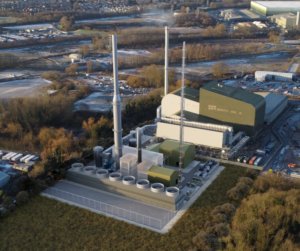Evero’s biomass-to-electricity plants get greenlight for CCS retrofit

This lays the foundation for the delivery of two large-volume Greenhouse Gas Removals (GGR) facilities operational by 2030.
The news follows the government giving the go ahead for a £22bn investment into CCS, including the Hynet cluster, on 4 October.
Both projects are a retrofit of Carbon Capture and Storage - on the existing Ince Biopower plant located near Ellesmere Port and the Mersey Bioenergy plant located near Widnes.
The plants already process over 300,000 tonnes of locally sourced waste wood, which would otherwise go into landfill, into renewable electricity.
With the addition of the CCS plants the assets will generate as much as 400,000 tons of Carbon Dioxide Removals (CDRs) per annum.
Simon Hicks, CEO of Evero, said “We’re delighted that the UK government has recognised the quality of our CCS projects. They are of long-term environmental importance to the UK’s commitment to meeting our Net Zero targets, removing over 400,000 tons of CO2 from the atmosphere per year once both plants are operational by 2030.
“Evero’s BECCS (Bioenergy with Carbon Capture and Storage) projects will prove that GGRs from biomass is deliverable. Our approach is considered the most sustainable form of BECCS, through the use of locally sourced waste wood feedstock. It’s a process that can be repeated across all the UK’s waste wood fuelled renewable electricity plants, with a total CO2 removal potential of 3.6 million tons per annum.
“At Evero, we are delivering on our promise to be forever capturing carbon. This is a crucial milestone in the delivery of that promise and we look forward to contributing to the unlocking of a low carbon future across the north west of the UK. Well done to all our teams and partners in getting us to this stage.”


























